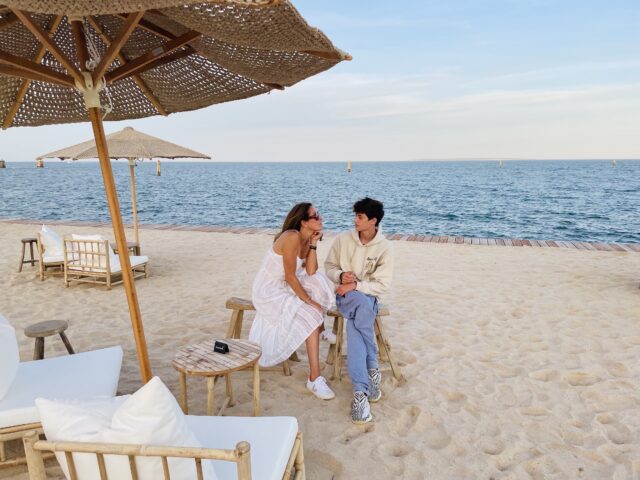
When I was a teenager I asked my dad why our family had never moved from the New York City neighborhood where he and my mom had raised me and my sister, even though he was born in Germany and had lived in more than 13 different European cities, and my mother had come from Brazil.
His simple answer was rooted in what he valued: “This is home.”
My father’s father was killed during World War II while serving as Germany’s consul general in Sweden. He’d been a delegate to the Treaty of Versailles and the League of Nations talks after World War I. (In an interesting twist of fate, my mother’s uncle was Brazil’s ambassador to England; he and his uncle, who was president of Brazil, actually met my father’s father at those meetings at Versailles.)
My father’s family home had been leveled during the bombings of Berlin, so my widowed grandmother and her four young children moved to Potsdam. That house was then confiscated, so they went back to Berlin. Years later, the war was ending and a man named Wolfgang Greeven—who’d been assigned to rebuild the European energy and oil industry and was frequently in Berlin—fell in love with my grandmother. He wanted to get my grandmother and children out of Berlin; they were trapped because part of the city was occupied by the Russians, who’d closed its borders to keep Germans from fleeing. So Wolfgang smuggled my grandmother out of Berlin by car wearing a WAC (Women’s Army Corps) uniform, with my little Aunt Veronica, who was stricken with typhoid fever, hiding under a blanket in the back seat. Wolfgang soon became the director of Standard Oil’s Esso (now ExxonMobil) and the family went on to live in many of its satellite cities that as a kid I found on a globe: Munich, Malmö, Estoril.
Growing up, I’d listen to my dad’s stories—like the time President Truman stayed in the family’s home while attending the 1945 Potsdam Conference with Josef Stalin and Winston Churchill, which divided up Europe after the war. Although we were tethered to Manhattan, the borough where my parents met and fell in love, they took us traveling to multiple foreign countries, taught us multiple foreign languages, and ensured we made lots of foreign friends. My father, who came to New York City in 1957 to attend Columbia Law School, has always agreed with Einstein that “nationalism is an infantile disease, the measles of mankind.” He believed that it will gradually disappear because there are so many more important issues like war, pandemics and the climate crisis.
And I thought this was all normal for an American family.
So, why make NYC home base? “Because it’s the whole world, right here,” he said. I was lucky enough to grow up with these parents, Rainer and Regina, who taught us that we should celebrate—rather than fear—the world, and America, a mosaic of international colors and flavors, not a bland, homogenized melting pot. And, of course, our home, my parents’ adopted home—New York City—is the full, harmonized expression of that truth.
This long October weekend, enjoy this Hamptons International Film Festival Issue dedicated to the in-person festival, which boasts films from all over the world. And, this Thanksgiving, I will be grateful for the cornucopia of international offerings that are regenerating New York as I write this, followed on December 18 by International Migrants Day, in which we are reminded of the more inclusive, unified, post-pandemic resilient society we are striving to be.
Remember: Provincialism is out; internationalism is in.




